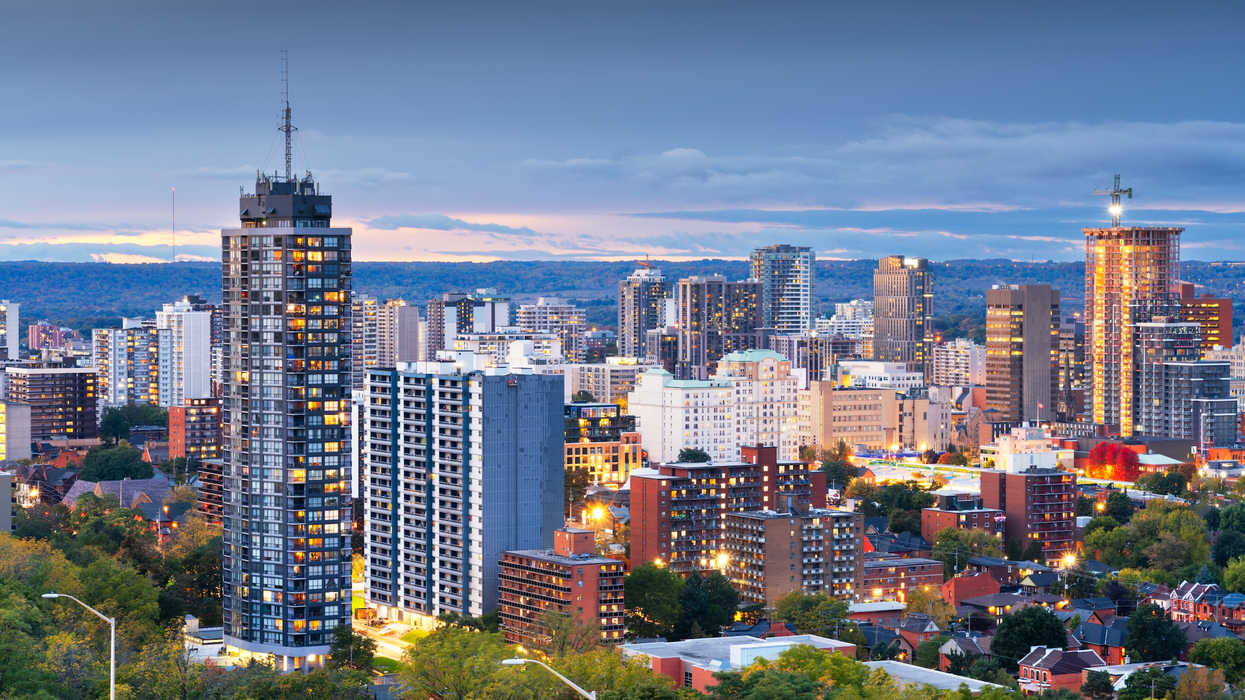On Wednesday, Hamilton City Council adopted a motion to decrease development charges (DCs) on all residential and non-residential development by 20% starting from September 1, 2025, to August 31, 2027. The two-year pilot program is intended to boost housing supply and bring down home prices for Hamiltonians, but those in the development industry say the discount isn't enough.
DCs are taxes that builders pay to a city in order to help fund increased infrastructure needs that may be required as a result of growth, including services like roads, transit, water, and sewer systems. But over the last 15 years, DCs in the region and across the GTA have skyrocketed, placing additional strain on already struggling development pipelines.
DCs in Hamilton are somewhat lower compared to other Ontario municipalities, but while inflation has only risen by about 30% in the last decade, Hamilton's DCs have increased by a whopping 227%, CEO of the West End Home Builders’ Association (WE HBA) Mike Collins-Williams wrote in a news release in December 2024. As of June 1, DCs for a single detached in The Hammer will run you $98,511. With the 20% discount, that price will fall to $78,809.
Prior to Council's decision, Collins-Williams penned another open letter on July 30 making the Association's case for a temporary 50% DC decrease, rather than the proposed 20% discount. He cited year-to-date housing starts in Hamilton hitting a 10-year low in June and the potential for 41,000 jobs to be lost in the GTHA as sales plummet and projects fall through. "The need for action has surpassed immediate as we are hemorrhaging opportunity and jobs," he wrote.
Collins-Williams also pointed to Peel Region, which also recently dropped their DCs by 50%. Other efforts from nearby municipalities include Mississauga reducing its residential development charges by 50% and by 100% for three-bedroom units in purpose-built rental apartments, respectively, and Toronto, where DCs were recently dropped for sixplexes and a 4% May increase to the city's DCs was frozen after Council voted instead to offer reprieve for struggling housing development.
While WE HBA, which represents 320 land development and residential construction companies in Hamilton, has been clear on its stance that the industry and greater Hamilton economy would benefit from lower DCs, some councillors have expressed concerns surrounding the incentive's effectiveness and viability.
Councillor Brad Clark (Ward 9) raised concerns about a lack of infrastructure grants from the provincial or federal governments to help the City pay for the 20% discount. "They're all saying, 'We want development charges lowered.' Prime Minister Carney went so far as saying by 50% [...] but do we have anything from them?"
The answer is no, the Feds and the province have not agreed to subsidize the discount, which is expected to cost $9.6 million annually. At Council, General Manager of Finance and Corporate Services at the City, Mike Zegarac, articulated the discount's financing, which will be sourced from excess 2025 budget funds, as was shared in a staff report on the proposed amendment to the DC bylaw.
"We had budgeted for development charge exemptions based on historic levels of development," he said. "And as those development levels have not met that historic average, we're able to accommodate the estimated $9.6 million from within the approved 2025 budget."
Councillor Cameron Kroetsch (Ward 2) also raised concerns about a lack of financial transparency from builders surrounding where the additional profit would go. Kroetsch expressed that the discount should only be adopted if Council could ensure the discount would result in more affordable home prices for Hamiltonians, rather than money pocketed for builders.
"I think it's extremely important that if we're giving incentives to people and they're taking money from the city, they should be required to meet some level, any level, of financial transparency. And what I continue to hear is that's not required in this situation," said Kroetsch.
On the other hand, Councillor Michael Spadafora (Ward 14) points out that it wouldn't make sense for builders to pocket the extra money given the GTHA's stalled housing market.
"They're not selling the houses at the prices now, so if they took the 20% discount and didn't change the price, why would anybody buy the house? No one would buy the house," he said. "[...] If they don't [lower prices], they continue to not sell houses, people continue to get laid off, and we keep going in a circle."
Mayor Andrea Horwath, who voted in favour of the motion, said she is excited to see how the pilot program plays out. "I'm looking forward to seeing what the pilot project yields in terms of unlocking some of those developments that are stuck in the pipeline right now because of the economic uncertainty that we're facing," said Mayor Horwath. "I think signalling that we're going to work with the community of builders and not for profits and investors who look at Hamilton as a possible place to invest and to build — I think that's a positive signal."





















